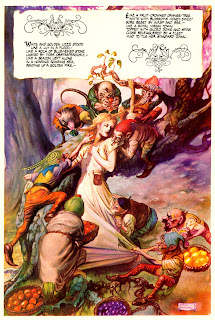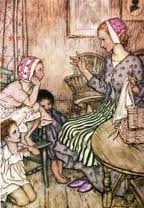Although the title seems to infer some sort of horror movie, the subject of this blog could not be further from this. In the last lesson I had, I was told that the "destination" of a book was the direction of its story and ending. The book we looked into for an example was the brilliant, famous "Pride and Prejudice" by Jane Austen, a book we are going to cover in our AS literature course and one I read every year at Christmas.
Reading the first chapter, we had to use its structure and content to tell us where the book appeared to be heading, what it implied the story would be about. Most people who are opting to do English Literature should already know what this classic is about and how it ends (in my opinion everyone should, but its their loss). We had to base our theory on its destination solely on the first chapter, not our own knowledge.

From the first chapter, we could tell the book was going to be largely to do with marriage. The opening line itself is well-known and talks about how it is "a truth universally acknowledged, that a single man in possession of a good fortune, must be in want of a wife". The first line in any book is important and this one clearly shows that it will have much to do with men, fortune and wives.
An interesting thing about the chapter is its lack of setting or description. The characters who are coversing are not described until the lat paragraph. This seems to bring the conversation itself into more focus, quite on purpose, so we know that the subject of the conversation is important to the story -more so than the setting in which the conversation is taking place. And what is this oh-so-important conversation about you ask? Marriage (who would've thought it!) and a single man who has just moved into the vicinity. This hints at the possibility that we will see this man married. "Lizzie" is mentioned fondly -which leads us also to think of Lizzie as a potentially significant character and that perhaps we may see her married too.
The very last sentence is leaves a lasting impression on the reader. It says that "the business of her life [Mrs Bennet's] was to get her daughters married". This could convey the implication that the business of this book is to show them getting married. In this way, the first chapter makes it quite clear what its destination is.
As homework, I was told to read a (very, very) long poem called "Goblin Market" by Christina Rosetti. It took me a little longer than I expected it would and since I have only read it through once i have got much from it. Having a sister myself, I liked the close sisters dynamic it had to it and the sort of folktale it seemed to relate to the reader. Before reading the poem, I did some background research on Rosetti and learned that she was deeply religious -she even refused two suitors due to religious reasons.
So when I read the poem, it struck me that there could have been a religious theme to it. She mentions the goblin's giving Laura the "forbidden fruit" like the apple in the Bible story of Adam and Eve. The goblins seem to be a parallel for the devil too. When Laura eats the fruits that they tempt her with -like the devil tempting her with sins- she seems to sign her soul over to them, growing gradually closer to her death. This is the only insight into the poem I get for now.
 The omniscient narrator relates to us the inner working of the minds of other characters too, so that we may understand them better. We are told that the book Miss Bingley reads provides her with no amusement but she tells the Darcy that "...there is no enjoyment like reading!", this gives us evidence of her ingenuine nature. The way in which she tries to ensnare Darcy's attention repeatedly shows us her careful planning, manipulative side.
The omniscient narrator relates to us the inner working of the minds of other characters too, so that we may understand them better. We are told that the book Miss Bingley reads provides her with no amusement but she tells the Darcy that "...there is no enjoyment like reading!", this gives us evidence of her ingenuine nature. The way in which she tries to ensnare Darcy's attention repeatedly shows us her careful planning, manipulative side.












